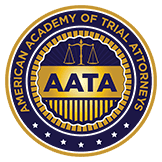Many clients often ask us whether their personal injury cases can be arbitrated rather than proceed to a civil jury trial. The answer to that question lies in the willingness of all parties to agree to proceed to arbitration and waive their constitutional right to trial by jury.
Once it is properly invoked, it is a cost effective, intelligent and time efficient method to resolve a legal dispute.The Rotatori Law Firm is an advocate of private personal injury binding arbitration.We have frequently arbitrated both automobile personal injury cases and premises liability claims.Medical malpractice cases can also be resolved by binding arbitration.
Personal injury private arbitration can fast track resolution of a civil case. A civil case filed in the Superior Court in the State of Connecticut can take two years from filing to trial. A civil arbitration can be scheduled and heard within a few months. A personal injury arbitration testimony and argument can be heard over the course of days. There is no jury selection process. The controversy is usually heard by skilled, experienced personal injury lawyers and the hearing is conducted in an attorney's office. There is usually no formal record to an arbitration proceeding and the rules of evidence are not stringently adhered to. Testimony, however, is still taken under oath and evidence must still be presented. The arbitrator also takes an oath to hear and exam the matter faithfully, fairly and to make a just award.
The primary purpose of arbitration is to resolve a controversy less formally than a trial while promoting justice and fundamental fairness for all the parties. Arbitration preserves judicial resources. It does this by allowing parties an alternative method of conflict resolution without over taxing an overburdened judicial system with a protracted civil jury trial often riddled with pretrial and post-trial motions.
Get Started Now. We can help you fight for compensation. Call for a free case evaluation!
We serve clients throughout Southbury, Stamford, Norwalk, New Canaan, Fairfield County , and Greenwich.
If parties have an underlying contract clause that states that their disputes shall be resolved by arbitration, that clause represents a written submission to arbitration. The submission to arbitration is then invoked by a party to the agreement by a written demand for arbitration.
A motor vehicle insurance contract may have first party contract language that requires that both parties agree to arbitrate the matter in controversy. This contract language can be seen in uninsured/underinsured motorist automobile insurance contracts.
Civil personal injury cases which are initially filed in the civil court system can be removed from the civil court jury system by agreement of the parties and arbitrated. This often occurs when the parties to a controversy have significant underling risk in having their legal matter heard before a jury.
A plaintiff may have significant underlying preexisting medical conditions aggravated by the defendant's negligent conduct. A trained fact finder schooled in personal injury law can intelligently comprehend and apply principles of legal causation. A plaintiff may have a weak liability case with significant damages that creates significant risk of a defendant's verdict in a civil jury trial. An arbitration proceeding will allow the plaintiff to present a complex negligence case to an arbitration panel that can comprehend the factual predicates that underline the basis of the claim.
The defendant may have low limits of liability insurance exposing the defendant personally to money damages in excess of the automobile liability insurance coverage amount. A defendant's insurance carrier may want to cap the dollar exposure to no more than the insurance policy limits preventing the insured from being exposed to a judgment in excess of policy limits. This can protect the insurance liability carrier from a bad faith claim while providing the defendant with some peace of mind that he or she will not be personally exposed to civil monetary damages.
Baseball arbitration is another arbitration style that can be used. It is used in major league baseball, hence, it is called baseball arbitration. This type of arbitration is also used in private industry with labor and management disputes. In baseball arbitration the parties to the controversy pick a dollar figure. The arbitrators don't split or compromise the two positions. They in essence choose the side that is more reasonable. This is generally not the arbitration style that is used in private personal injury arbitration. Theoretically, however, baseball style arbitration could be used as a form of personal injury arbitration if the parties were so far apart on their view of the liability or damage case value that they were not willing to yield to a compromise of their position and wanted to take a winner take all approach to the legal controversy.Baseball Arbitration
When a private personal injury matter proceeds to arbitration by agreement after the case had initially been filed in the superior court, more frequently than not depositions have been taken and the discovery has been completed. However, if a party needs to take a deposition after the arbitration agreement has been entered into Conn. Gen. Stat. 52-412 allows a party to an arbitration agreement to make an application to the Superior Court for an order directing the taking of a deposition for use as evidence.
If attendance of a witness is needed, an arbitrator, umpire or any other person qualified by law may issue a subpoena for attendance of the witness and production of materials under Conn. Gen. Stat. 52-412. The statute reference to "any other person qualified by law" arguably would include an attorney representing a party in the case. A Connecticut Bar admitted lawyer who is by definition a Commissioner of the Superior Court has power to issue subpoenas under the law. The subpoena, however, would be returnable to the arbitrator or arbitration panel under Conn. Gen. Stat 52-412.
The parties to an arbitration agreement can spell out in the agreement the type of arbitration award sought. The award can be a bare award that is not reasoned or the award can be a reasoned award with findings of fact and conclusions of law. A reasoned arbitration award summarizes evidence, notes important facts, notes important legal principles, and provides a basis for the decision made by the arbitration panel.
An arbitration award can be an interim award or a final award. Once a final award is made, the arbitrator or arbitration panel loses its jurisdiction over the matter in controversy. If an issue remains and the arbitration panel wants to retain jurisdiction they should issue what is called an interim award.
In a personal injury case a party may wish to have liability or fault determined before the panel proceeds to the issues of causation and damages. The arbitration proceeding can be bifurcated or split. In a bifurcated proceeding if the arbitration panel finds liability they can issue an interim award finding liability and then proceed to determine the economic and non-economic damages in the matter before issuing their final award. Economic damages in a personal injury case can consist of medical bills and wages past, present and future. Non-economic damages in a personal injury case consist of just fair and reasonable money damages for pain, permanent injury, and the inability to fully enjoy the pleasures of life.
A panel may also issue an interim dollar award but leave open the collateral offset issue to the dollar award at the request of the parties as spelled out in the arbitration agreement. In its most simplified explanation, the dollar award can be offset for the payment of past medical bills under an applicable automobile or health insurance contract which is then offset by employee and employer health insurance premium payments.
Where the petitioner and the respondent cannot agree on the proper legal application of the collateral offset rules, the issue can be decided by the panel if it has retained jurisdiction by initially only issuing an interim or preliminary award. The record can then be supplemented with the collateral offset evidence and the panel can proceed to issue a final award on behalf of the parties after the close of the record.
In Connecticut the parties can fix the time frame for issuing the award in the arbitration agreement under Conn. Gen. Stat. 52-416. If the arbitration agreement does not fix the time frame, the statute requires that the award be rendered within 30 days from closure of the hearing or if the parties are to submit additional material after the hearing, within 30 days from the date fixed by the arbitrators for the receipt of those materials. The award must be in writing, signed by the arbitrator or by a majority of them. Unless the parties agree in writing to extend the time to issue an award after 30 days, an award made after that time has no legal effect.
Under Conn. Gen. Stat. 52-414(a), a majority may determine any pending arbitration question. However, unless a submission to arbitrate states otherwise, or consent by the parties to a majority award is clearly shown, all the arbitrators must concur in the award to make it binding on the parties. Patterson v. Leavitt 4 Conn. 50, 10 Am. Dec. 98 (1821), Nettleton v. Gridley 21 Conn 531, 56 Am. Dec.378 (1852).A tactic that can be taken in a case that is on the fringe on issues of liability or causation of damages is to try to negotiate by agreement a majority award if a party feels they are at risk for one arbitrator negatively adversely affecting the outcome of the case. This presupposes that the legal controversy is to be heard by way of a three panel arbitration board.
It is very rare for a civil court to vacate an arbitration award. In Connecticut, grounds for vacating an award are set out in Conn. Gen. Stat. 52-418. Defects that can result in a vacated award are an award procured by corruption, fraud or undue means, evident partiality or corruption of an arbitrator, arbitrator misconduct for refusing to postpone a hearing upon sufficient cause shown , an arbitrator refusing to hear evidence pertinent and material to the controversy, any action by which the parties rights have been prejudiced, or any exceeded arbitrator power such that a mutual, final and definite award on the topic or subject matter submitted was not made.
A claim that an arbitration panel exceeded their power can be shown by either proving the arbitration panel substantially disregarded the applicable law or that the arbitration award did not conform to what was submitted to the arbitration panel. A panel must decide only the issues submitted to them by the parties. However, the arbitration panel is given substantial deference on its application of the law to the facts of the case. To vacate on the grounds that legal principles were not properly applied requires a showing that the panel extraordinarily and in artfully applied the law. This is a difficult burden to meet. Civil courts give judicial deference to arbitration awards. Awards, however, can be vacated in the context of a ruling on the constitutionality of a statute or that an award violates public policy.
One method an arbitrator can take to insulate his written arbitration award is to clearly address in the findings his assessment of the credibility of the parties and the witnesses. Civil courts will defer to the arbitrators award where the case in controversy turned on the assessment of the credibility of the parties and the witnesses. In a credibility type case this will help the arbitrator insulate the award from being vacated by a court.
A motion to vacate, modify, or correct an award must be made within 30 days from notice of the arbitration award to the party who makes the motion under Conn. Gen. Stat. 52-420. A trial court lacks subject matter jurisdiction to vacate the award if the 30 day rule is not adhered to. Middlesex Ins. Co. v. Castellano 225 Conn.339, 623 A.2d 55, (1993).
A party who has received notification of an award may make an application to the Superior Court for an order confirming the award at any time within one year under Conn. Gen. Stat. 52-417.
The party that applies for an order confirming the award at the time the order is filed with the clerk for the entry of judgment by statute files the agreement to arbitrate, the selection, if any, of a Conn. Gen. Stat. 52-415 additional or substitute arbitrator, any written agreement requiring a certified question to the court, each written extension of time, if any, within which to make the award, the award, each notice and other paper used upon an application to confirm, modify, or correct the award and a copy of each order of the court upon such application.
The judgment or decree confirming the award is then docketed as if it were rendered in a civil action under Conn. Gen. Stat 52-421.The judgment or decree then has the same force of law as a judgment in a civil action and may be enforced as such.
An appeal may be taken from an order confirming, vacating, modifying or correcting an award, or from a judgment or decree upon an award, as in any ordinary civil action under Conn. Gen. Stat. 52-423. An unrestricted submission is not subject to de novo review even for errors of law so long as the award conforms to the submission. Blakeslee Arpaia v. Department of Transportation 273 Conn. 746, 873 A.2d 155, (2005).Courts will not review the evidence before the arbitrators, or the arbitrator panel's decision on a legal question where the submission was unrestricted. Blakeslee, 155. Judicial review is narrow at best.
If the parties to an arbitration agreement want to restrict arbitration panel decision making, they must use express language in the arbitration agreement restricting particular issues or retaining specific rights. By failing to expressly restrict the matter in controversy, the matter is classified as an unrestricted submission. Where there is an unrestricted submission, the courts will not review evidence or the arbitrator's determination of a legal question O &G/O'Connell Joint Venture v. Chase Family Ltd. Partnership No.3, 203 Conn. 133, 523 A.2d 1271, (1987). An unrestricted submission really limits the effectiveness of judicial review. If parties to an arbitration agreement don't want a factual or legal question determined by the arbitrator or arbitration panel, the arbitration submission should have clear language to that effect, thereby restricting the submission. Without a restricted submission limiting the arbitrator's right to adjudicate a controversy, the arbitrators are empowered to decide factual and legal questions and the arbitration award cannot be vacated on the grounds that the construction placed upon the facts or the interpretation of the law was erroneous. AFSCME, Council 15, Local 3153 v. Town of Newtown, 49 Conn. App.443, 717 A.2d 759, (1998).
Preserving a written record in an arbitration proceeding is not required unless the arbitration agreement provides otherwise. In most private personal injury arbitrations in Connecticut, a court reporter is not used. However, if the case were complex, a written record, although more costly, could benefit the proceeding allowing the arbitration panel the ability to read the preserved testimony before rendering an award. If the case in controversy is on the cusp, the party that needs to reference advantageous testimony in a brief filed after the close of the record would benefit. This would be even more important if the arbitration was heard over many days. Some arbitrators in complex cases do insist on a written record to make the decision making process easier. Panel members can then go back and review arbitration testimony in its pristine state rather than relying on their mental notes, written notes, lap top notes or the potential skewed notes of other panel members.
Often, parties in a personal injury civil action will decide to arbitrate a case after a trial date has been picked, after a status conference has been held or after a trial management conference has been conducted. There are even some instances where an arbitration agreement is entered into after the beginning of jury selection. The issue for the practitioner is how to handle the pending Connecticut Superior Court matter. Conn. Gen Stat. 52-409 addresses this. When the court is satisfied that a matter is proceeding to arbitration by way of a written arbitration agreement any party to the arbitration agreement can file a motion staying the civil matter until the arbitration has been held in compliance with the agreement.
The party filing the motion must be ready, willing and able to proceed with the arbitration. The court will then stay the matter. Therefore, a party to an arbitration agreement should file a motion to stay the civil action as soon as the arbitration agreement is signed by the parties. The motion, when filed, should clearly state the party is ready, willing and able to proceed. It should also recite that an arbitration agreement has been signed. The party may consider attaching the arbitration agreement to the motion but must be careful to consider the effects of any confidentiality clauses that are now in a public court file. This could include the confidential high/low language in the agreement.
If a party to an arbitration agreement fails to perform what do you do? Conn. Gen. Stat. 52-410 allows you to make an application to the Superior Court in the jurisdiction of a party residence by way of writ of summons and complaint with proper legal service. The complaint should state that a written arbitration agreement was entered into. The arbitration agreement should be attached as a copy. The complaint should clearly state that the defendant has neglected to perform the arbitration by agreement but that the plaintiff is ready, willing and able to perform. In essence, the plaintiff would seek an order from the superior court directing compliance with the agreement. The application is then heard at a short calendar or as a privileged case. The Superior Court then decides whether an agreement was entered into and can direct compliance within the scope of that agreement.
A complying party also may elect to go forward with the arbitration, foregoing the remedy of Conn. Gen. Stat 52-410. If the complying party elects not to apply for a remedy under Conn. Gen. Stat. 52-410 he may present his case to the arbitration panel. If the arbitration panel provides proper notice, the panel may proceed to hear the evidence and make their award even if the non-complying party refuses to attend . International Broth. Of Teamsters, Chauffeurs, Warehousemen and Helpers of America, Local 145 v. Shapiro 138 Conn. 57, 82 A.2d 345 (1951)
I hope this topical discussion on Connecticut personal injury private party arbitration has been informative. The Rotatori Law Firm is an advocate of Alternate Dispute Resolution by way of private binding High/Low Bracketed Arbitration, Baseball Style Arbitration or private mediation. Our law firm has used its many years of experience and knowledge in representing clients in private personal injury binding arbitration to the advantage of our clients. The Rotatori Law Firm has also assisted personal injury attorneys in the State of Connecticut by serving at their request on arbitration panels.
Feel free to contact Attorney Peter Rotatori, III at (203) 626-1446 if you have any questions that pertain to Connecticut Binding High/ Low Private Party Personal Injury Arbitration. If you have been injured and need legal representation and would like to have an attorney explore the possibility of eventually having your personal injury matter arbitrated with the defendant's insurance carrier contact Peter Rotatori, III for an initial free consultation to discuss your claim.
If you are lawyer that has a question about arbitration or needs a personal injury attorney to serve either on a three panel arbitration board or serve as a single arbiter neutral contact Peter Rotatori, III at The Rotatori Law Firm. Peter Rotatori, III is knowledgeable in personal injury arbitration and can assist you in the process of bringing your legal proceeding to a fair, equitable and timely resolution.
The Rotatori Law Firm practices personal injury arbitration and mediation throughout the State of Connecticut including the following cities and towns located in Hartford County: Avon, Berlin, Bloomfield, Bristol, Burlington, Canton, East Granby, East Hartford, East Windsor, Enfield, Farmington, Glastonbury, Granby, Hartford, Harland, Manchester, Marlborough, New Britain, Newington, Plainville, Rocky Hill, Simsbury, Southington, South Windsor, Suffield, West Hartford, Wethersfield, Windsor, and Winsor Locks.



